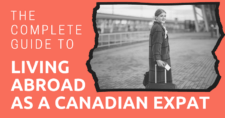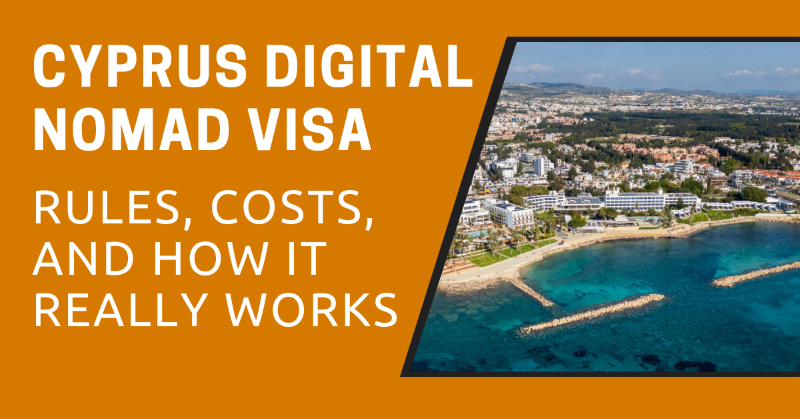
Thinking about working remotely from Cyprus? Learn everything about the Cyprus Digital Nomad Visa, including eligibility, income requirements, tax rules, and the real cost of living on the island.
I was born and raised in Cyprus, and I’ve watched this island change over the years. To outsiders it looks effortless, the weather, the sea, the slow rhythm of life. But those who live here know it’s more complicated. A morning can start with coffee by the water and end with a power cut or another long wait at the Migration department. That mix of beauty and frustration is Cyprus in a nutshell.
And the Digital Nomad Visa, reopened in March 2025, captures it perfectly. On paper it offers non-EU workers freedom and stability. In practice, it delivers both the charm of the island and the familiar headaches that come with daily life here.
Cyprus is an island of contrasts, 300 days of sunshine and a laid-back rhythm, yet a place where things always take longer than expected. The roads are good, the internet fast enough, and the sea never far away.
But water shortages remain a summer worry, buses are rare outside city centers, and paperwork can stretch a simple errand into a half-day affair. Most people drive, not because they love it, but because they must. Private clinics are quick and English-speaking, but public hospitals are still catching up.
It’s a small island that works, just not always efficiently.
Disclaimer: This article may include links to products or services offered by ExpatDen's partners, which give us commissions when you click on them. Although this may influence how they appear in the text, we only recommend solutions that we would use in your situation. Read more in our Advertising Disclosure.
Contents
- Key Takeaways
- Why the Scheme Matters in 2025
- What the Visa Actually Is
- Who Really Needs It?
- The Rules, Requirements, and How They Feel in Practice
- The Application Process
- Documents and Certifications
- Fees
- Renewing the Visa
- Taxes and Residency
- The Cost of Living
- Opening a Bank Account
- The Pitfalls
- The Trade-Offs
- Why People Still Choose Cyprus?
- Beyond Digital Nomads: the Blue Card
Key Takeaways
- The Cyprus Digital Nomad Visa offers a legal pathway for non-EU remote workers to live on the island while working for employers or clients abroad.
- You need a minimum net monthly income of €3,500 (plus 20% for a spouse and 15% for each child), full health insurance, and properly certified documents in English or Greek.
- The visa lasts one year and can be renewed twice, up to a total of three years, but does not lead to permanent residency.
- Living costs vary widely by city: Limassol is the most expensive, while Paphos and Larnaca are more affordable. Expect around €1,600–€2,200 a month in total expenses.
- Bureaucracy is slow, housing is tight, and power or internet issues can occur. But the island’s weather, safety, and lifestyle balance make up for it.
- Tax residency is based on the 183-day or 60-day rules. Many nomads eventually hire local accountants to stay compliant.
- Cyprus is expanding its remote work ecosystem through initiatives like the EU Blue Card for highly skilled professionals.
Why the Scheme Matters in 2025
The visa itself isn’t new.
It was first introduced in October 2021 with only 100 places before the quota was raised to 500 in 2022.
In March 2025, the Civil Registry and Migration Department (CRMD) officially re-launched and refined the scheme, tightening documentation rules, clarifying insurance requirements, and streamlining renewals.
Demand has remained steady ever since.
By the end of June 2025, the Deputy Ministry of Migration reported that Cyprus had issued 518 Digital Nomad permits, together with 389 for family members. The program’s busiest year was 2023, with 371 new applications, before interest slowed in 2024 and the first half of 2025.
Still, renewals remain strong, with 306 nomads choosing to extend their stay. Approval rates are comfortably above 92 per cent.
The nationalities tell their own story. Russians make up the largest group of applicants, followed by Israel, the UK, Belarus, and Ukraine. Among family members, Lebanon appears alongside the same mix. The cap of 500 exists for a reason.
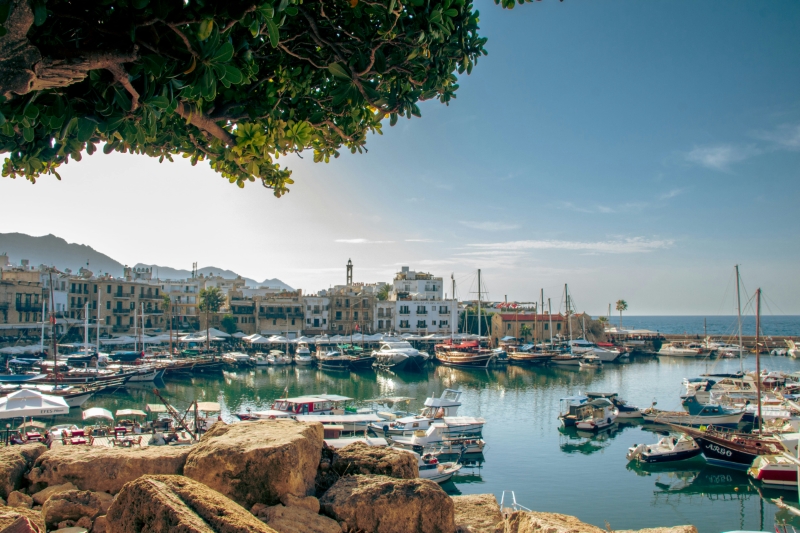
Cyprus wants to attract remote workers who bring income into the economy, people who rent apartments, eat out, pay taxes, and contribute to local life. But policymakers are also mindful of housing pressures, especially in Limassol and Paphos, where rents have risen sharply in the past two years.
Some legal guides now speculate the quota could rise to 1,000 permits, though this has not been confirmed. For now, competition for places remains real, and waiting lists can appear overnight.
At the same time, officials have begun talking about turning Cyprus into a magnet for digital nomads, not only through visas, but through tech-hub development, startup grants, and cross-island digital corridors.
It’s an ambitious vision for a small country, but one that shows how seriously the island now takes its remote-work economy.
What the Visa Actually Is
This isn’t a work permit.
The CRMD defines it as a residence permit that lets you live in Cyprus while working remotely for clients or companies abroad. You can rent a flat, open a bank account, and send your children to school. What you cannot do is take on local clients or be employed by a Cypriot company.
The thinking is simple: Cyprus wants your income to flow into the economy without creating competition in the local labour market.
And you can see it on the ground.
Limassol has become a hub for start-ups and co-working spaces, where cafés hum with digital workers. Paphos, once a seasonal destination, now has families staying year-round. Larnaca offers quieter living with the convenience of its airport.
And Nicosia, while less glamorous, remains the place where paperwork eventually catches up with you.
In between, co-working spaces have flourished, offering not just Wi-Fi but a sense of belonging.
In the evenings, you’ll find the same people in old-town wine bars swapping stories about apostilles, tax codes, and the quirks of island life, because on this island, bureaucracy is a shared experience.
Who Really Needs It?
If you’re from the EU, EEA, or Switzerland, you don’t need this visa. Free movement rules still apply, and all you need to do is register your residence.
But for everyone else, Britons since Brexit, Americans, Canadians, Australians, and many from Asia, Africa, and Latin America, this is the cleanest route. Without it, you’re left juggling 90-day tourist limits, Schengen restrictions, or worse, operating in a grey zone.
I’ve met people who tried that route, watching their calendars more closely than they watched the sea. It’s stressful, and it defeats the point of being here.
The Rules, Requirements, and How They Feel in Practice
The requirements sound clear enough. You need a net monthly income of at least €3,500, rising by 20 per cent for a spouse and 15 per cent for each child, as listed on the official Digital Nomads & Family Members page.
You must have
- full health insurance
- proof of accommodation
- a clean criminal record
- medical checks including tuberculosis screening.
The permit lasts for one year, renewable for two more, but never longer than three years in total.
The list looks simple. But each item has the potential to trip you up. For example, families often underestimate the extra income they need for dependents. Insurance policies are sometimes rejected for lacking outpatient cover.
And more than once, I’ve seen applications stall for weeks over a missing apostille. Even remote work has its legal grey zones.
Nomads must stay compliant with GDPR, social-security, and cross-border employment rules, particularly when clients or subsidiaries operate partly in Cyprus.
The authorities rarely penalize honest mistakes, but they don’t forget them either, and a botched filing can make renewals trickier than expected.
The Application Process
Applications must be submitted within three months of arrival, in person or via an authorised representative, at the Migration department in Nicosia. The Ministry says the process takes five to seven weeks. In reality, most applicants wait closer to eight to twelve.
Translations can take weeks, appointments get delayed, and staff often ask for documents you didn’t know needed legalisation.
That’s Cyprus: things move, but never quickly.
If rejected, the reasons come in writing. Every applicant also provides biometric data, fingerprints, photo, and signature. Children under six only need the photo. At the Migration office, the ticket machine sets the pace and strangers swap tips like neighbours.
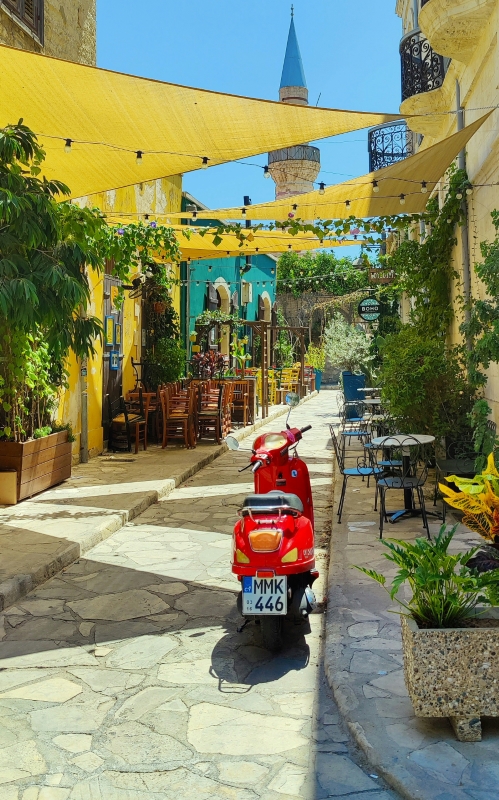
Documents and Certifications
This is where most people get caught out.
All documents must be in Greek or English. If not, they need an official translation by a sworn translator, a consular authority, or a government office in the issuing country. Authentication rules are strict:
- Hague Apostille Convention members must use the Apostille stamp.
- Non-Hague states require a full chain of diplomatic certification through the issuing country’s Foreign Ministry, a Cypriot consulate, and finally the Ministry of Foreign Affairs in Nicosia.
- Non-public documents must be certified by an authority in the issuing country.
There are a few exceptions. Russia and Serbia have bilateral agreements that allow documents to be accepted with just an official seal.
Within the EU, Regulation (EU) 2016/1191 exempts many public documents, birth, marriage, or criminal records among them, from apostille, as long as they are submitted with multilingual standard forms.
Fees
The official fee is €70 for the permit, plus another €70 if it’s your first time registering in the Aliens’ Registry.
Renewing the Visa
Renewals follow the same cycle and must be filed at least a month before the permit expires. If approved, you’re told how to collect your card.
Taxes and Residency
The visa lets you stay, but it doesn’t automatically make you a tax resident. That depends on how many days you spend here.
- Over 183 days, and you’re a resident by default.
- The 60-day rule also applies if you meet certain conditions, like having a permanent home and not being tax resident elsewhere.
Becoming tax resident means Cyprus can tax your worldwide income. Many nomads only realise this when renewal time comes, and accountants remind them of their obligations.
There are incentives too.
The “non-dom” regime, in place since 2015, exempts dividends and interest from certain taxes for up to 17 years. It’s a draw for investors, though for salaried nomads it mostly means more paperwork. Either way, most people eventually hire a local accountant.
In Cyprus, it isn’t a luxury, it’s survival. The country applies both the 183-day and 60-day residency rules, adds GeSY (public insurance) and social-insurance contributions to income tax, and requires proper filings for tax-residency certification.
It’s manageable, but far cleaner with professional advice.
The Cost of Living
Whether Cyprus feels affordable depends on where you settle. Limassol remains the most expensive, with one-bedroom flats at €1,200–€1,600. In Larnaca, it’s closer to €800–€900. In Paphos, €650–€850. Nicosia is cheaper, but its brutal summers can make it hard to live there comfortably.
The Cyprus Statistical Service (Cystat) puts average monthly utilities at €200–€250, mostly thanks to air conditioning in summer and heating in winter. Internet packages cost €25–€30 a month, and food budgets run €300–€400 for one person, once groceries and meals out are combined.
Healthcare is good and mostly English-speaking, especially in private clinics. Public hospitals function, but waiting times can test your patience.
Cyprus runs a universal healthcare scheme called GeSY. It’s contribution-funded and covers both public hospitals and many private providers, but it isn’t entirely free at the point of use: patients pay co-payments with an annual cap and small personal contributions for some services. GeSY has widened access and, in 2025, began buying beds from private hospitals to reduce waiting times.
Public transport, on the other hand, is the weak link. There are no trains, buses can be sparse, and taxis are costly for regular use.
Nearly everyone drives. Road networks between major cities are solid, but parking in Limassol or Nicosia is a daily test of calm.
Electricity remains one of the island’s biggest frustrations.
Despite endless sunshine, Cyprus still struggles to integrate renewables into its grid. Solar power is abundant, but storage limits mean much of it goes unused. Interconnection projects with Greece and Israel, meant to cut costs and connect Cyprus to the European grid, are delayed and under investigation, leaving households to pay some of the highest energy prices in the EU.
According to Ernst & Young and Nomad List, nomads in Cyprus spend €1,600–€2,200 a month, meaning the scheme could generate more than €10 million annually if fully used. Real estate, telecoms, catering, wellness, and transport all benefit. Three-quarters of nomads are freelancers, building networks that spill into the local tech ecosystem.
Opening a Bank Account
Banking is its own rite of passage. Cypriot banks will ask you to appear in person, or through an authorised intermediary, and provide a thick KYC pack: passport, proof of address, source-of-funds documentation, and once you have it, your Alien Registration Certificate or residence application receipt.
The process can take weeks, but once complete, you’ll have access to a local IBAN, debit card, and online banking. It’s also worth noting that most remote workers eventually open an account with an international business unit for smoother transfers and multi-currency options.
The local system is strict but efficient once set up, and life on the island becomes much easier once your Cypriot IBAN starts working. It’s not rare to find people at the Migration office comparing notes. A few people told me they spent so many mornings there that the clerk began greeting them by name. “That’s when we realised,” they said, “we were officially locals.”
The Pitfalls
The problems that catch people out aren’t dramatic, but they’re costly.
Families underestimate how much extra income they need for dependents. Certificates without the right stamps stall applications. Insurance policies are rejected. Some discover too late that they’ve triggered tax residency by staying more than 183 days.
Freelancers occasionally accept local contracts, putting their renewals at risk. And others are left stranded when the 500-place quota fills up.
On a practical level, power outages or internet drops still happen, especially during summer peaks when the grid strains under demand or when cyberattacks hit telecoms networks, as they did earlier this year. Most co-working spaces now keep backup Wi-Fi and generators for exactly that reason.
None of this is hidden in the rules.
You just don’t see the reality until you’re in the middle of it.
The Trade-Offs
The strengths of the visa are clear. It gives certainty. No more counting days, no fear of overstaying. It anchors you in the EU, with stable banking and contracts. And it lets you live at a Mediterranean rhythm, the sea, the food, the slower pace.
- But frustrations are just as real.
- Bureaucracy is slow.
- Housing is expensive.
- Summers bring electricity bills that sting.
- Public transport is poor, so most end up buying cars.
- And the visa itself is capped at three years, with no path to permanent residency, a detail many overlook until it’s too late to change route.
Almost everyone settles in Limassol or Paphos, which intensifies the same problems, rent inflation, traffic, and strain on local services. The smaller cities and villages have space to grow, but few nomads venture beyond the coast.
Cyprus is also under pressure from global competition.
Spain offers renewable three-year permits. Portugal allows up to two years. Thailand has gone further with a ten-year option. Estonia was the first EU country to launch such a scheme in 2020, followed by Greece, Malta, Hungary, and Italy.
Greece in particular is turning itself into a case study. Athens now ranks 12th globally in the 2025 Work from Anywhere Barometer. Nomad List ranking is less clear (some sites show it as #112).
Elsewhere, Spain combines affordability with infrastructure. Portugal has vibrant nomad communities in Lisbon and Porto. The Netherlands offers stability and robust infrastructure. Canada is praised for quality of life, and Germany for advanced infrastructure and liberal visa policies. More than 43 jurisdictions worldwide now compete in this space.
For Cyprus to stay relevant, it must expand its quota, ease housing pressures, and modernise its energy and digital systems, not just market itself as a tourist island.
Why People Still Choose Cyprus?
And yet, despite the frustrations, people stay. I’ve seen newcomers arrive planning a year and end up building lives they never expected.
The reason isn’t the visa. It’s the island.
I’ve seen this island change, and though nothing here happens fast, that’s part of its spell, you come for the sea, and you stay for the stubborn warmth of the people.
Cyprus is messy.
The paperwork will test your patience, the heat will drain you, and the rent will make you question your budget.
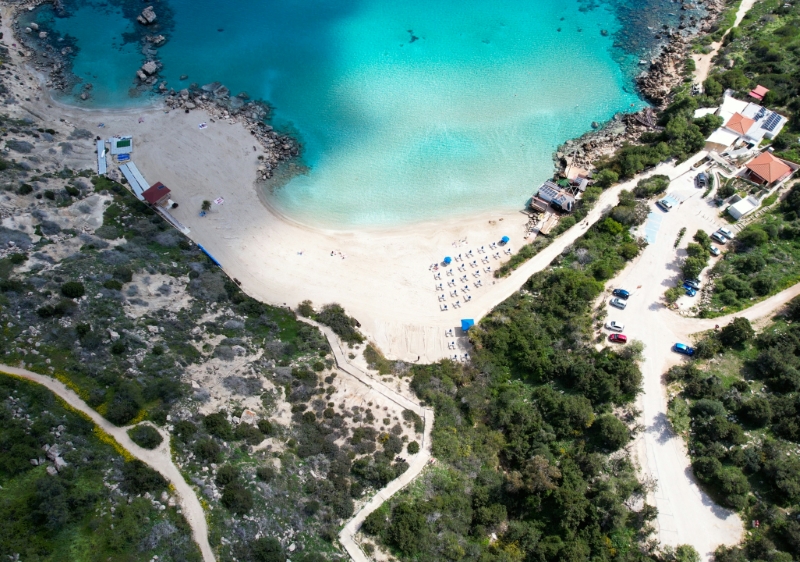
But what you gain is harder to find elsewhere: time.
- Time to close your laptop and walk to the sea.
- Time to linger over coffee with a friend.
- Time to live, not just to work.
- The island’s small size adds to that sense of belonging.
- You start recognizing faces in the market, at cafés, even in the Migration office.
For people used to anonymity in big cities, that familiarity matters.
But loneliness creeps in if you don’t seek community. Many nomads say that local meetups, co-working events, and beachside coffee groups are what shift Cyprus from exotic to home, the moments that turn relocation into connection.
And the numbers back it up.
Real estate, telecoms, catering, wellness, and transport are all benefits. Three-quarters of nomads are freelancers, building networks that spill into the local tech ecosystem.
As Andreas Alexi of the Cyprus Chamber of Commerce and Industry put it earlier this year: “The real benefit lies in the connections nomads create with local SMEs and the technology ecosystem.”
But the bigger challenge is community. Digital nomads across the world have said that without it, travel feels hollow, a cycle of moving without meaning. True fulfillment comes from contributing, collaborating, and building networks.
If Cyprus can invest in co-living, collaborative hubs, better digital resilience, and sustainable energy, it could turn digital nomadism from a transient lifestyle into something lasting.
Beyond Digital Nomads: the Blue Card
Cyprus is also diversifying its approach.
In July 2024, it introduced the EU Blue Card for highly skilled third-country nationals. Applicants must hold higher-education qualifications or equivalent experience and work in sectors such as ICT, finance, healthcare, pharmaceuticals, and shipping.
Blue Card holders benefit from competitive salaries, social rights, and favourable family reunification. They can move to another EU member state after 12 to 18 months and apply for permanent residence after five years.
The downsides are that applicants must stick with one employer at first, and Cyprus’s absence from Schengen makes mobility harder than in other states.
Even so, the scheme strengthens the island’s toolkit for attracting international talent.
For all its quirks, Cyprus keeps drawing people in, a small island halfway between continents, offering both the serenity of the sea and the chaos of paperwork. It’s not perfect, but for many who stay, it’s close enough.



